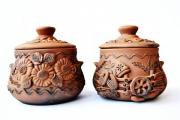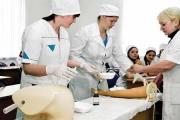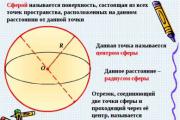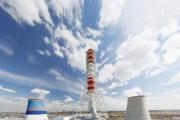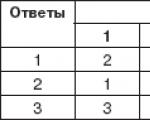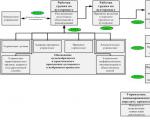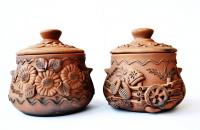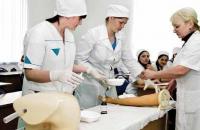Every entrepreneur doing business with China knows: you can find everything in this country. But choosing the most economically attractive item of trade from the huge variety of what is produced in the Middle Kingdom is not an easy task in itself. And when the decision is made, the next stage begins, and it turns out to be even more difficult: finding a reliable supplier who can not only produce the required products at a high level, but also send them to the customer without missing deadlines, and at the same time do everything at an adequate price. Considering that China is the third largest and first most populous country in the world, finding a suitable production facility could literally turn out to be a lifelong endeavor for an entrepreneur. Trade cooperation between Chinese and Russian business became one of the main topics for discussion at SPIEF 2018.
Fortunately, the pragmatic Chinese did not leave the problem without a solution: each of the twenty-three provinces into which the Celestial Empire is divided on an administrative-territorial basis has its own specialization. This approach significantly simplifies the task for foreign businessmen, who just have to arm themselves with a “production map” of Chinese provinces and can hit the road.
Hong Kong
First of all, it is a city of high technologies, new products and developments. If in the period from the 40s to the 80s. Since the dominant sector here was industry, now over 90% of Hong Kong's GDP is occupied by the service sector. The main difficulty for entrepreneurs when doing business with Hong Kong is transporting products from here. Since Hong Kong is a free economic zone, in order to transport goods purchased in this city through China, it is necessary to prepare customs documents and pay taxes. In Hong Kong you can buy high technology, new products and developments from different areas, but, first of all, of course, this concerns IT and technology. Also in Hong Kong, the service sector is more developed than the goods sector, due to difficulties in exporting the latter (customs documents and taxes).
Shanghai
Located in eastern China, the city is the most important financial and cultural center of the country, as well as the world's largest seaport in terms of cargo turnover. The production of automobiles (Shanghai Volkswagen and Shanghai General Motors factories), computers and consumer electronics (LG Electronics), telecommunications equipment (Ericsson and Nokia), and road construction equipment (Sandvik) is especially developed here. There are also petrochemical and chemical plants, engineering enterprises, a dairy factory and paper production.
Guangzhou
The capital of the densely populated Guangdu province, which is considered the leader in export volume. With a population of over ten million people, Guangzhou is one of the three largest cities in China and is rightfully considered a “fashion city”. Here entrepreneurs will find a wide variety of cosmetics, watches, clothing and shoes and the largest fur factories. Another direction for which Guangzhou is famous is the production of traditional art and folk crafts, namely painted and cloisonné enamel, ivory carvings, fans, umbrellas, and embroidery. In addition, the famous Canton Fair is held here twice a year - an industrial exhibition that ranks third in the world in terms of the volume of transactions concluded.
Shenzhen
A city in Guangdong Province that is worth paying attention to for businessmen interested in electronics and electrical products. Among the huge number industrial enterprises and production facilities located here include factories of the world's largest brands: Huawei, Lenovo, IBM, Hitachi, Seiko Epson, Sanyo, Fuji Xerox, Samsung and others. In addition to household appliances, telecommunications equipment, mobile phones, computers and components for them, high-precision medical equipment is produced in Shenzhen.
Foshan
This city can be considered the furniture center of China. In total, in the city and its environs there are over three thousand factories producing furniture, fittings and related materials, but the highest concentration of these products is in two huge shopping centers: Foshan International Furniture Expo Mall and Louvre Furniture Mall. Here you can find all the furniture that will be in demand on the Russian market: upholstered furniture, cabinet furniture, kitchen furniture, bathroom furniture, offices, hotels, and so on.
Sichuan
The second most populous province of the Celestial Empire after Guangdong is also located in the south of the country. It is known not only for Sichuan pepper - a spicy flavoring additive that is the main ingredient in the sensational sauce of the same name - but also for its developed agriculture- growing rice, wheat, corn, seeds. The province is also China's leader in pork production and accounts for over 20% of the country's total wine production.
Jiangsu
Numerous silk and textile producers await entrepreneurs in this province. In addition, electrical engineering, tools, machine tools and small equipment factories are located in Jiangsu. The chemical industry, especially the production of rubber products, and metallurgy are also developed here.
Yiwu
The most famous city among entrepreneurs in Zhejiang Province. He is rightfully considered the “king of small wholesale”. The world's largest consumer goods market is represented here - Futien. On an area of three kilometers and five sectors retail space There are more than one hundred thousand stores with a variety of products.
Shaoxing
This city in Zhejiang province is also called "Chinese textile city." There are more than 30,000 factories for the production and processing of all types of fabric, over 4,000 hectares of retail space, as well as a logistics distribution center. textile industry, from where the products are sent to different countries of the world.
Jilin
In the northeast of China is the province of Jilin, or otherwise Jilin, where they produce wooden barrels, herbs for Chinese medicine, mushrooms, grapes and fish. In the same region is Liaoning Province, famous for agriculture, seafood, tobacco, semi-precious stones and paintings
Beijing
Almost all the country's state-owned enterprises are concentrated in the capital of China and there are many headquarters of various corporations. In recent years, Beijing has become increasingly renowned as a center for innovative entrepreneurship and successful venture capital. Major international forums, conferences and other business events are regularly held here, in which not only politicians, but also businessmen take part.
Other provinces of China are of no less interest to entrepreneurs from different countries: in each of them businessmen will be able to find a lot of attractive products for the successful development of their business. For example, in the south-west of the country, in Tibet, famous for its medicine, there are also factories producing cane, leather goods, textiles, and spare parts. However, when planning a trip to a particular region of the PRC, you should take into account not only its production specifics, but also the characteristics of the peoples living in this territory.
» Search for manufacturers, wholesale suppliers - factories and plants in China
With all the variety and richness Chinese market choosing a truly reliable supplier that suits your business, whose terms will satisfy you both in terms of cost and quality, is a very difficult task that can require a lot of time and money. Thanks to personal services, you can find any product without leaving your workplace, as well as place an order at the best prices!
Searching for manufacturers in China - defining goals and objectives
Businessmen resort to searching for Chinese manufacturers mainly in two cases:
- If necessary, cheaply and efficiently produce an analogue of a certain Russian or foreign product that is already on sale;
- If necessary, find a reliable manufacturer for a fundamentally new product, which has no analogues yet.
The second option is especially tempting. For example, if you have developed a certain product that does not have a at the moment analogues in the world or country, then at low costs for its production you can receive significant profits from your innovation until an analogue is created and even later - at the expense of a brand that has become established in the market.

Chinese industry seems to many to be the most fertile field for the implementation of low-cost projects that promise their developers big profits, but not everything is so simple. China is a huge country with a developed industry, which means that prices for production at different plants and factories are far from the same.
The cost of products from a Chinese factory, in addition to objective factors such as the price of raw materials, transportation costs, etc., is also influenced by the language of communication. Only those entrepreneurs who are ready to communicate with their Chinese partners in Chinese can count on cheap production of their goods in China. This means that at a minimum you will need .

By searching for a suitable manufacturer on your own, without the help of a specialist, you risk wasting time and money. Find factories in Guangzhou- to carry out this service you need a person who not only knows the language of this country very well, but also understands the economic aspects, who can easily navigate the situation and choose from a variety of potential partners the one that best suits you. Moreover, such a specialist bases his activities not on unfounded assumptions and conjectures, but on clear market analytics, experience and knowledge of the People's Republic of China.
Business services in China - Russian-speaking assistant
Was the information useful to you?
Bookmark it so you don’t lose it!
Hello, dear friends! I finally got around to writing another interesting article on business with China, and I would call this article “Business with China for adults”! By the way, I advise you to read it! I usually write about how to make money quickly by ordering goods from China and selling them on the Internet, but this article is for strong and serious people who want to order production of any goods in China, check factories and find a manufacturer to produce their goods.
But first, according to tradition, I’ll tell you who this is for, in what cases you can use it and how to make money from all this! And I’ll give you a little desire to read the article to the end by the fact that you can order your own production from just a thousand dollars! Yes, yes, yes... Only $1000 and you can order your own production. Want to know how? Read on!
The possibilities are endless
Let's look at what opportunities your production gives you, who can use it and why order it. That is, you can order production if:
- If you want to produce and sell counterfeit brands, and especially new items! For example, imagine that Adidas has released new top-end sneakers and they are starting to gain popularity in Russia, but they are expensive! You can take a pair of sneakers, send them to China and they will produce 100% copies for you at lower prices, so you can sell them at a crazy markup or bait the client with an inexpensive price (cheaper than in stores). Recently, one of my intermediary partner’s clients placed an order for the production of copies of Lacoste T-shirts, which in Russia cost an average of 6-7 thousand rubles. And what do you think? The Chinese sewed them in such a way that the founder of Lacoste himself would not have distinguished them from the original. The first batch of T-shirts has already been sold in Russia at lower prices than in stores, but still with a big markup, because they cost only 700-1000 rubles to purchase. Cool, isn’t it?)
- If you want to slightly change (improve) the products available on the market. For example, you saw a product and found shortcomings in it that, as it seems to you, prevent it from being sold, and by eliminating them you are sure that sales will go better. You can send the original, tell us what amendments are needed, and your product will be produced especially for you.
- If you want to order the production of existing goods, but with your logo. Then you can also order this in China, but this does not require full-fledged production and this is more like an addition to this article;)
- If you have come up with some unique product and want to produce it for a wide audience. Many of us are inventors at heart, but finances do not always allow us to produce in Russia. But in China, even taking into account delivery, everything is cheaper. Maybe not by much, but for large quantity the amount of goods will be significant.
I told you the possibilities that I see myself, but I am sure that you will come up with something of your own to use for manufacturing in China! By the way, you can add options in the comments.
How to get everything done
Now it's time to move on to implementing the idea. What to do:
- Find a reseller in China(I can recommend my own) who provides similar services.
- Request a search for factories producing what you need(my intermediary costs 100 bucks, I don’t know about yours).
- Select from the options found and request a factory inspection. The inspection includes a visit to the production site, a photo report, checking the manufacturer’s documents and performance, checking production products, a request for samples (so that the reseller sends you a sample for quality control), etc. It costs about 250 bucks from my reseller, I don't know about others.
- Draw up a task for the intermediary, what needs to be done, so that he, in turn, would draw up a task for Chinese manufacturers. Well, you shouldn’t learn Chinese, right?
- Conclude an agreement and pay for the first trial batch of production. On average, the first batch can cost from $1000 (for production this is pennies), depending on the product.
After the factory produces the product, it can be delivered to you. I described the intermediary delivery scheme and prices in the article ““.
Conclusion
In this simple way you can order in China own production absolutely any goods. It's profitable and convenient. As we all know, the Chinese love to make copies of brands, so they will take your orders with ease and great desire. If you have questions about the article or additions, write in the comments! Big income and good luck to you in everything! See you in the next articles;)
China's industry is, without a doubt, one of the most developed - in terms of the total number of industrial enterprises and the number of workers employed in them, the country ranks first in the world. Since the beginning of the 21st century, China has been the world's industrial superpower.
The main centers of Chinese industry are Jiangsu, Shanghai, Liaoning, Shandong, Guangdong, Zhejian. The basis of the country's economy is heavy industry.
Chinese industry began to develop as rapidly as it does now after the proclamation of the People's Republic of China in 1949 and the transition from a traditional agricultural economy to an industrial one. Since 1979, the Chinese government has strived for greater openness as a means of modernization and further development production requires foreign investment. Measures are also being taken to attract foreign investors, such as tax incentives and legislative permission for foreign companies to create holdings in China.
Fuel and energy complex
The basis of China's electric power industry is coal; more than 1 billion tons of it are mined in the country every year. The largest coal basins are located in the north and northeast of China, with a total of about 100 large mining centers and over ten thousand smaller mines.
75% of energy in China is generated by thermal power plants. However, recently there has been a development of hydropower, which in the long term will have a positive impact on the ecology of the country. The main source of hydroelectric power is the Yangtze River.
Oil production
China is the world's fourth largest oil producer and is also an active exporter. The most oil-rich areas are the north, northeast and northwest; production is also developed in the shelf zones of the Yellow and South China Seas. Despite such a high level of production, China remains one of the world's leading oil importers; according to forecasts, the share of imported oil will only increase in the future, being one of the problems of the Chinese economy.
Metallurgy of China.
China ranks first in the world in the production of ferrous metals. The country has its own reserves of iron ore, on which the industry is based, but they are not rich, as they contain only about 30% iron. There are also reserves of coking coal and alloying metals, which are important raw materials for ferrous metallurgy. The centers of black China are Anshan, Shenyang, Beijing, Baotou, Tianjin, Wuhan.
Non-ferrous metallurgy is also developed, since quite rich reserves of copper, antimony, tin ores and other rarer non-ferrous metals have been discovered in the country. Thus, Chinese reserves of manganese and molybdenum are of global importance. Enterprises in this industry require high level technology development, therefore located in developed areas.
Mechanical engineering of China.
Mechanical engineering in China is one of the most developed and important branches of specialization. Machine-building enterprises are located mainly near large trading hubs, such as ports, as well as in large industrial centers and close to raw material bases. Currently, the country's position as the largest manufacturer of engineering products on the world market is only strengthening.
The Chinese machine tool industry is one of the most developed in the world - about 1 million machine tools are exported annually, including very high-tech equipment with automatic control systems.
Automotive industry
Relatively recently, only since the 1990s, the Chinese automobile industry has been rapidly developing. Since 2009, China has been the largest car manufacturer in the world and produces twice as much as the second and third (USA and Japan) combined. Local brands, such as BYD, Lifan, Geely, Chery, Great Wall and many lesser-known ones, are very numerous and account for approximately half of all cars sold. The rest are produced at joint enterprises with large foreign concerns. The vast majority of cars produced are used domestically and are not exported. The country is giving high priority to the development of more environmentally friendly cars and electric vehicles, which allows for further growth of the industry.
Shipbuilding
Shipbuilding, like many other strategically important industries, is under government control in China. The state shipbuilding corporation is called CSSC, it includes more than 20 shipyards, 67 factories and 30 research institutes. Chinese shipbuilding is mainly export-oriented; due to large production volumes and cheap labor, this industry is very economically profitable.
In China, there is a great need for passenger air transport, so the country is going to develop this area. The country has its own giant state-owned company, AVIC, which is also involved in developments in military aviation and weapons.
Since 2003, China has been the world's third space superpower: the country produces and launches spacecraft, including manned ones. In terms of the number of launches, China is second only to Russia, surpassing the United States. China's space program is very ambitious and includes goals such as exploring outer space, using it for peaceful purposes and protecting China's national interests.
Electronics industry in China.
China produces the vast majority of all electronics and mobile equipment in the world, including such famous brands like Apple, Dell, HP. In China there are not only enterprises for assembling equipment, but also for its development. The country also has its own electronics manufacturers, but in terms of productivity they are, as a rule, much inferior to foreign ones, although their quality is not as low as is commonly believed. Today, there are Chinese manufacturers of high-quality smartphones that are well-known on the world market, such as Lenovo, ZTE, Xiaomi, Meizu. The production of copies and fakes of world brands is also widely developed.
Chemical industry of China.
Currently, China's chemical industry is actively developing and the country is becoming a world leader. The chemical industry has developed many branches, in particular, the production of nitrogen and phosphorus fertilizers, the chemistry of organic synthesis and polymers. The developed mining and chemical industry provides these industries with raw materials. Output growth rate chemical products are growing from year to year, which secures China’s title as one of the world leaders in this industry. The domestic market is also expanding, as chemical products are needed for all Chinese industries, such as mechanical engineering and packaging. Because of this, demand exceeds supply, and there is a shortage of chemical products in the domestic market, which leads to an expansion of the share of foreign corporations, more scientifically and technologically advanced than local ones, in China's chemical industry.
Chinese forest industry
China is one of the largest consumers of wood in the world, which is why the country faces a very acute problem of shortage of forest resources. Public Policy forest protection is very active, since due to the high volumes of industrial production there are big problems with the environment and air quality in particular in the country. It consists of increasing the area of new forest plantations and banning logging in many areas. Thus, in the area of the Yangtze River, after a severe flood in 1998, tree cutting was prohibited for 50 years. The plans include complete failure from deforestation of natural forests in China and harvesting of wood grown on special plantations. In the meantime, China is forced to import huge volumes of wood from abroad. In turn, the country is the largest exporter of wooden products such as furniture and toys. Paper production, which has been the country’s specialization since ancient times, is also developed.
Light industry of China.
Light industry in China is also very developed, its main industries being food and textiles.
The textile industry is represented by enterprises producing wool, flax and hemp in the north of China and silk and jute in the south. China ranks first in the world in the export of clothing made from cotton fabrics; the country has production facilities of many international companies. As in the electrical industry, counterfeit and fake branded items are widespread. Chinese light industry plays a very important role in the country's economy and is one of the largest in terms of production volumes. This development is due to the availability of basic production factors: China is very rich in cheap labor resources, and the production of fabrics, both natural cotton and synthetic fibers. One of China’s advantages over other exporters in the industry is the presence of foreign investment and favorable economic conditions for them.
Food industry
Most enterprises food industry China is located in the southwest of the country. This industry is also very developed - China has been fully meeting its food needs since the 1980s, despite the huge size of its domestic market. Today the country is a major exporter of seafood and fish, as well as fruits and vegetables. The tea industry has been historically developed - since the 19th century, China has not lost its status as one of the main suppliers of tea. Tea industry enterprises are located mainly historically, since the collected raw materials must be immediately processed, which is done in already built factories.
If 99% of the factories producing a particular product are located in one region, it is obvious that this region has a number of competitive advantages. These may include cheap raw materials, favorable supplies of components, cheap labor and low logistics costs.
However, one should not write off producers located outside this region. However, if you decide to contract with such suppliers, it is important to ensure that favorable prices driven by competitive advantages (i.e. lower production costs) rather than by weak quality control systems, for example.
In this article, we will list the differences in regional development in China, and also talk about how they can affect the search for a suitable manufacturer.
Pearl River Delta (PRD)
South China
Located in southern China, the PRD region includes Hong Kong, Guangzhou and Shenzhen. The region's industrial development is the result of Deng Xiaoping's "reform and opening up" policy and the creation of "special economic zones." Rapid development PRD is associated with a huge amount of investment foreign companies, who were attracted by favorable trade and tax conditions, cheap labor and the region’s proximity to Hong Kong.
The two main industrial cities in the region are Shenzhen and Guangzhou: From a market town with a population of 30 thousand people, Shenzhen has grown into one of the largest international trading centers, and today it is home to more than 10 million people. Guangzhou, located north of Shenzhen, is the main industrial center in the Pearl River Delta. The Canton Trade Fair is held twice a year in Guangzhou, attracting thousands of businessmen and importers from different countries.
What products does the Pearl River region and the south of China specialize in:
Clothing and footwear, equipment, lighting and toys, sporting goods, stationery, art, building materials, furniture, ceramics, stone.
PRD is gradually moving away from the labor-intensive production of consumer goods and currently specializes in high-tech electronic equipment, hardware and automotive parts.
What are the advantages of purchasing goods from Guangdong Province?
Local plants and factories, as a rule, work for the international market. The infrastructure in the Pearl River Delta meets all modern requirements, so transporting goods from this region does not cause any problems. And the search for the necessary components, raw materials and equipment does not take much time due to the large number of factories in the region. At the moment this is best place for the production of high-tech goods.
Flaws:
For the reasons stated above, prices in PRD tend to be higher than in other regions. Many manufacturers are also well aware of the current market value the product they produce in your home market, which should be taken into account during negotiations. Yangtze River Delta (YRD)
East of China
 Surrounding metropolis Shanghai Home to more than 105 million people, the Yangtze River Delta is known for its cluster of industries that produce for China's domestic market.
Surrounding metropolis Shanghai Home to more than 105 million people, the Yangtze River Delta is known for its cluster of industries that produce for China's domestic market.
Production at YRD has traditionally focused on low-cost, high-volume products. The competition here is quite fierce, which keeps prices low. It is necessary to understand that due to low margins, enterprises sometimes sacrifice product quality and cut production costs by using cheap raw materials. Service in YRD is at a lower level compared to PRD.
And although organizing the purchase of goods in this region noticeably more difficult, you should not refuse this option. With careful control, factories in YRD can produce high quality products at low prices. It is worth noting that overall quality Products in the region (which is China's second largest export hub) are gradually growing as local businesses expand into the international market.
Suzhou, Ningbo, Shanghai, Nanjing and Hangzhou.
What products does the Yangtze River Delta region specialize in:
General consumer goods, textiles, metal and glass products, automobile engines, bicycles, electronics, household appliances, building materials, paper products, etc.
Advantages of the region:
The production costs of many products are lower than in the Pearl River Delta. Otherwise, the region has the same advantages as PRD (well-developed infrastructure and access to raw materials).
Flaws:
For most enterprises in the region, the price of goods takes priority over quality. Many plants and factories are in debt. Counterfeits of copyrighted goods are often produced here, so we recommend that you take care to protect your intellectual property.
Northeast China
Historically, the northeastern region has been the center of China's heavy industry due to its abundance of coal and oil. Industry here is largely focused on the production of iron, steel, petroleum, petrochemicals, machine tools, as well as ships, aircraft and automobiles. In recent years, the government has decided to reduce the share of heavy industry in the region in order to make the region a center modern production. However, at the moment the reform has not yet borne fruit. The region faces a number of challenges, including enterprise overcapacity, insufficient investment and the dominance of state-owned enterprises.
Main industrial cities in the region: Shenyang, Dalian, Harbin, Changchun and Anshan.
What products does Severovo specialize in?east of China: Heavy industry, iron, steel, petroleum, petrochemicals, shipbuilding, machine tools, aviation and automotive.
Advantages of the region:
The main advantage is that the region is in close proximity to Russia, which reduces the cost of delivering goods to the Russian Federation.
Here you can find enterprises specializing in heavy industry that produce goods at very competitive prices.
Flaws:
Manufacturing in the region can pose a number of challenges. Manufacturing requires close attention to many aspects, including project management, intellectual property protection and quality control.
West China
China's western regions have long been suppliers of cheap labor to wealthier coastal regions. Migrant workers, attracted by high (by their standards) wages and job security, flooded the coastal areas and maintained China's comparative advantage in labor-intensive manufacturing for decades. Due to rising housing prices and falling wages in recent years, a significant portion of migrants have returned to the West. This was also facilitated by the government's initiative to develop the western regions. Although manufacturing in the western region is gaining momentum, you are unlikely to want to organize production or procurement in this region. As is the case in the Northeast, favorable prices are one of the few advantages of local businesses experiencing problems with quality control, logistics, export licensing, etc.
Main industrial cities in the region: Chongqing and Chengdu.
What products does the western region specialize in: Western China is the center of automobile production. There are also many factories producing computer components here.
What are the advantages of the region: Significant savings on the production of goods due to cheap labor and low land rental prices. If you are interested in importing components for computers, heavy equipment and cars, then this is perhaps the most profitable place in China.
What are the disadvantages: Since the region is landlocked, logistics pose a number of challenges and can be quite costly. Goods will have to be delivered by land (or by river) to a port in the Yangtze River Delta (Shanghai) or the Pearl River Delta (Shenzhen).
Zhejiang Province
The industrial foundation of Zhejiang Province consists of machinery, metallurgy, textiles, tea, pharmaceuticals, information technology. The province borders municipal entity Shanghai, Jiangsu and Anhui provinces in the north, Jiangxi province in the west and Fujian in the south. Its total area is 101,800 sq. km. Zhejiang's landscape is mainly mountainous - up to 70% of the total area. The province's eastern border runs along the East China Sea, where there are approximately 3,000 islands, the largest of which is Zhoushan Island.
The Chinese themselves call the Zhejiang province “the land of fish and rice.” The province's two main crops are rice and wheat, and the fishing and fish processing company Zhoushan Fishery is the largest in the province and in all of China. Zhejiang's manufacturing industry focuses on machinery, chemicals, textiles, food products And building materials. Most enterprises can be classified as small or medium-sized businesses.
There is even such a thing as “ Zhejiang model» - small production, mass producing low cost goods.
Steel production in Zhejiang is under development. Companies such as Hangzhou Steel and Iron Group Corp. can be considered the only major manufacturers in the province. They provide 70% of the total volume of ferrous metals produced here. But, nevertheless, production is concentrated in Zhejiang steel pipes.
A city like Wenzhou produces 70% of the total volume of steel pipes produced in China. And in the city of Ningbo there is large company Ningbo Baoxin Stainless Steel Co. Ltd. specializing in the production of cold-rolled sheet steel. The province also has developed production of copper and aluminum products. The products produced by Zhejiang's twenty major pharmaceutical companies include not only chemical raw materials, but also finished products such as vitamins, injection drugs, intravenous infusion systems and syringes. As you have already understood from this article, knowing the characteristics of certain regions, it will be easier for you to start a business with China and evaluate potential suppliers by asking leading questions. For example, what are they associated with? low prices for products? How long has the business been in operation? Does it have an export license? All this will allow you to make the most productive decision.



 Surrounding metropolis Shanghai Home to more than 105 million people, the Yangtze River Delta is known for its cluster of industries that produce for China's domestic market.
Surrounding metropolis Shanghai Home to more than 105 million people, the Yangtze River Delta is known for its cluster of industries that produce for China's domestic market. 
